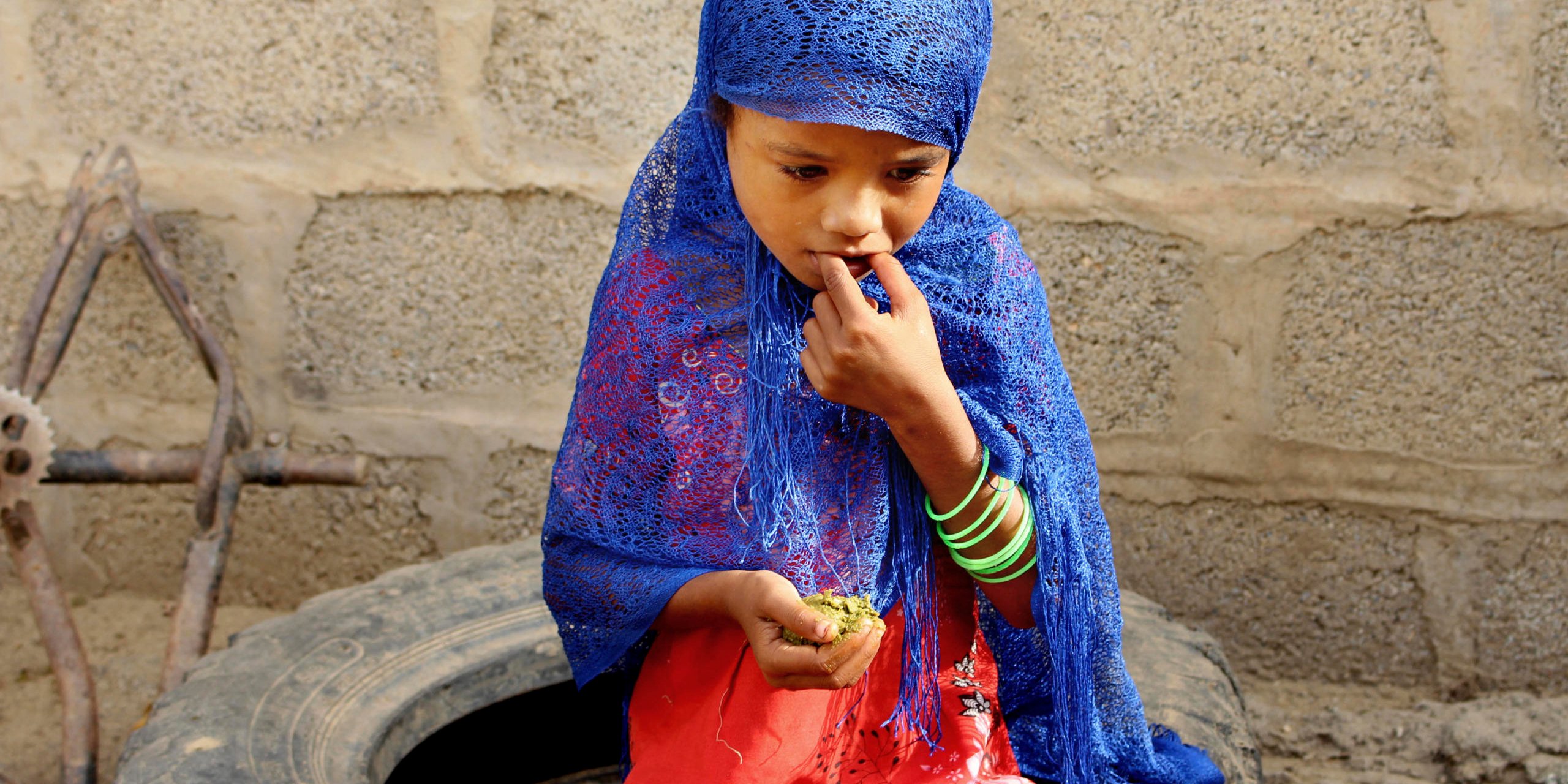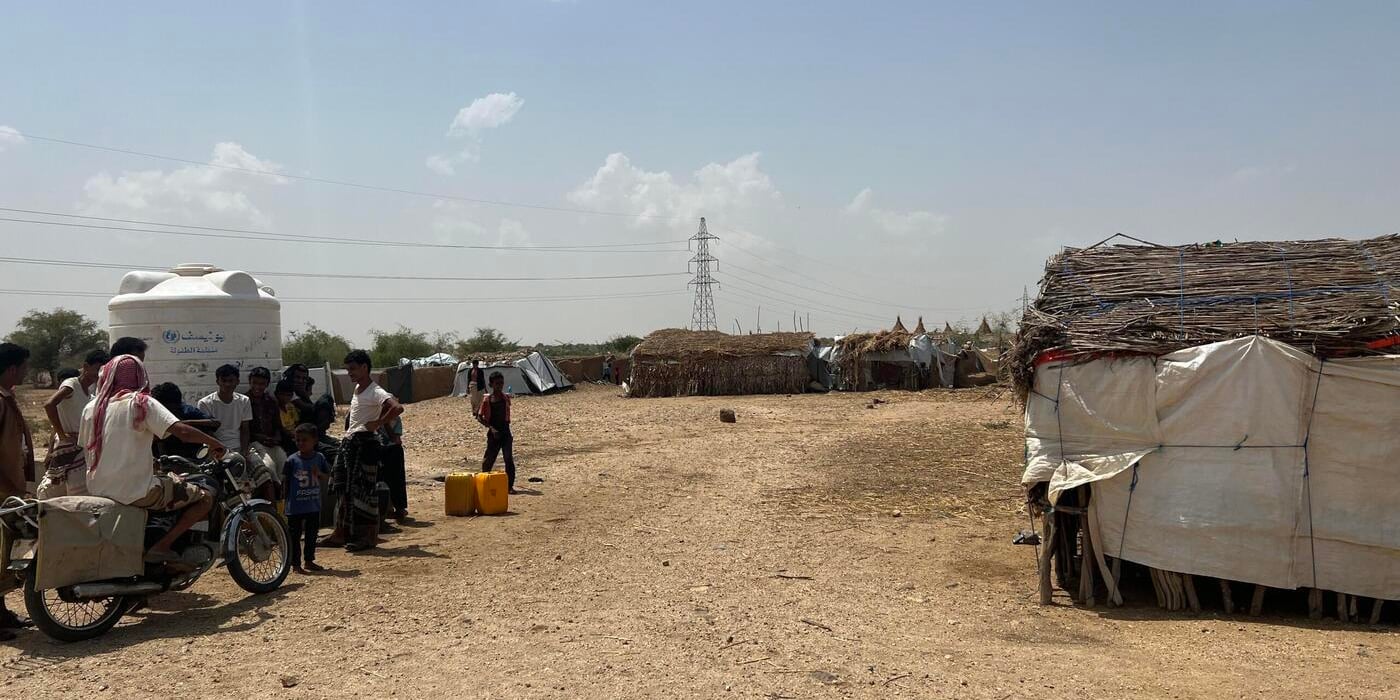
The girl in the photo tries to curb the hunger by eating boiled vine leaves. Many parents in Yemen have nothing else to serve their children.
Since the escalation of violence in March 2015, close to 10,000 people have been killed and 50,000 injured. Three million Yemenis have been displaced.
The war and ongoing blockade have led to acute food insecurity and a massive inflation.
Five million risk dying of hunger
In November last year, the UN warned that an estimated 400,000 children would be needing treatment for severe acute malnourishment and feared that 50,000 children risked dying. Since then, the situation has worsened. Save the Children warns that famine might affect five million people.
Having returned to Norway from war-torn Yemen, NRC’s Becky Bakr Abdulla recounts her impressions from a country experiencing daily bombings and a complete economic collapse.
"People who used to have enough to get by now beg in the streets to survive. This is the reality for many Yemenis today and has been so for more than three years.
Already prior to the war, Yemen was one of the poorest countries in the region. Now, economic collapse has pulled the country into a humanitarian emergency. According to Becky, its people experience this in three ways: Prices on everyday products such as rice and bread have rocketed, many people do not receive their salaries and the value of the Yemeni riyal has dropped catastrophically.
"The country’s economy is about to crash and some people have started taking to the streets to protest. Many have reached their bursting point."
Our work
The Norwegian Refugee Council (NRC) is present in Yemen, but restrictions from both sides to the conflict make it hard for us to reach people in need with humanitarian assistance.
In 2017, NRC assisted more than 760,000 people in the country. Becky is impressed by her colleagues who have lived and worked in the conflict for more than three years.
"Many of them have been displaced themselves and live in persistent fear for the lives of their families and themselves. Despite this, they carry on with their daily work to assist fellow Yemenis in need. They live under enormous pressure and the work they do is admirable. I travelled back on a UN flight to my safe home in Norway, while they stay behind and continue the work."


